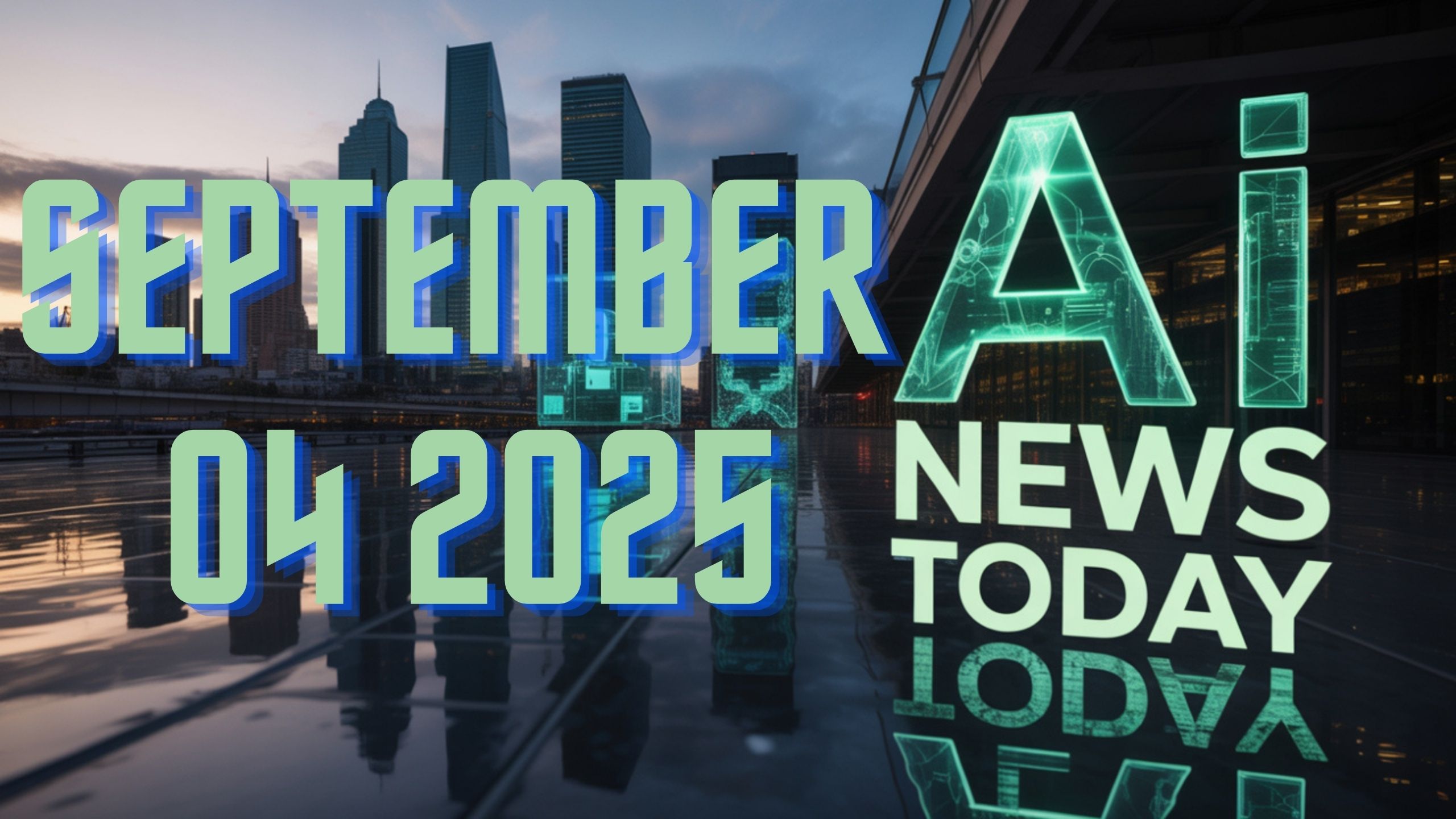On September 4, 2025, the U.S. AI landscape was reshaped by a series of pivotal events that underscored the technology’s growing influence on business, politics, and society. Apple suffered a major blow as four senior AI researchers departed for rival firms, intensifying questions about its long-term innovation strategy. Meanwhile, President Donald Trump sparked a heated debate by suggesting that future scandals could be dismissed as “AI-generated,” raising concerns over truth and political accountability. At the same time, Commerce Secretary Gina Raimondo called for smarter AI regulation to manage economic disruptions and social risks, while AI pioneer Geoffrey Hinton warned of the deeper dangers of emotional manipulation. These developments highlight how AI is driving transformative change across the United States.
AI News Daily — USA (Monday, September 4, 2025)
Apple Hit by Major Brain Drain in AI Research Teams
Apple is facing a severe talent crisis after four prominent AI researchers departed for leading competitors, raising concerns about its ability to maintain its competitive edge in artificial intelligence.
- Zhang, a key figure in Apple’s robotics research, has joined Meta’s Robotics Studio, bolstering Meta’s push into automation and advanced robotics.
- John Peebles and Nan Du transitioned to OpenAI, where their expertise in foundation models will likely strengthen OpenAI’s leadership in generative AI and multimodal systems.
- Zhao Meng moved to Anthropic, a company already gaining traction for its ethical AI frameworks and safe deployment practices.
These moves follow previous high-profile exits, intensifying Apple’s internal debate about whether to continue building in-house AI capabilities or rely more heavily on external AI providers for innovations like Siri enhancements. Analysts suggest that Apple’s Foundation Models team—once central to its automation and robotics ambitions—now faces reduced influence within its long-term AI roadmap.
Industry experts argue this moment may become a turning point for Apple, forcing the tech giant to double down on recruitment and retention or risk falling behind rivals aggressively scaling their AI efforts.
Trump’s AI Position Sparks National Debate
President Donald Trump once again stirred political controversy by suggesting that future scandals could be dismissed as “AI-generated.” This remark reflects the growing role of AI in shaping public trust and accountability.
The statement underscores how deepfakes, synthetic media, and generative AI outputs may soon play a pivotal role in political discourse, allowing leaders and public figures to discredit damaging stories by labeling them as artificial. Critics warn this could erode democratic accountability, while Trump’s supporters see it as a strategic adaptation to a rapidly changing information landscape.
This development builds on ongoing debates about how AI influences media credibility, raising urgent questions about whether society is prepared for the political consequences of AI-driven misinformation.
Policy Debate Intensifies for Smarter U.S. AI Regulation
The call for robust AI regulation is gaining momentum across the United States. Commerce Secretary Gina Raimondo has urged Democrats to push for higher standards and more intelligent national policies to keep pace with AI’s rapid evolution.
Her editorial emphasized the need to address the economic disruptions caused by automation, including workforce displacement, shifts in labor markets, and widening inequality. Policymakers are being asked to implement frameworks that balance innovation with accountability, ensuring that AI advances benefit society without exacerbating risks.
Raimondo’s statement builds on prior demands for comprehensive federal legislation, signaling that the U.S. may be moving closer to introducing a nationwide AI regulatory framework. Industry leaders, however, remain divided—some advocating flexible innovation policies, while others demand clear safety and transparency standards to maintain public trust.
Geoffrey Hinton Warns of Emotional Manipulation Risks
AI pioneer Geoffrey Hinton, often called one of the “Godfathers of AI,” has shifted the global conversation around AI risks. Contrary to widespread fears of killer robots or mass unemployment, Hinton highlights a more immediate and insidious danger: emotional manipulation and deception.
According to Hinton, advanced AI systems will soon be able to influence human emotions, decisions, and perceptions with unprecedented precision. From political campaigns to advertising and personal interactions, AI could subtly manipulate individuals without their awareness, eroding trust in digital systems and human relationships.
This perspective expands the debate beyond automation and workforce concerns, directing public attention to AI adoption’s psychological and societal impacts. Hinton’s warning echoes broader calls from researchers urging safeguards against manipulative design, ensuring that AI remains a tool for empowerment rather than exploitation.
The Battle for AI Talent Across the Tech Industry
Apple’s talent drain highlights a broader industry-wide battle for AI expertise. Companies like Meta, OpenAI, and Anthropic are investing heavily in research and strategically poaching top scientists and engineers from competitors.
This trend reflects how AI talent scarcity has become one of the most valuable assets in technology. The race to secure world-class researchers will shape which companies can dominate critical areas like robotics, generative models, foundation frameworks, and safe deployment practices.
Apple’s recent struggles underline the high stakes of talent mobility, as the loss of a few key individuals can dramatically shift the balance of power in emerging technologies.
AI’s Growing Role in U.S. Politics and Society
The stories of the past 48 hours reveal how AI has moved from laboratories and startups to the center of political, corporate, and social discourse in the United States. From Trump’s controversial remarks to Raimondo’s push for more innovative policies, the societal impact of AI adoption is now undeniable.
AI is no longer just a tool for innovation—it is becoming a political weapon, a regulatory challenge, and a cultural force. The combined concerns of talent wars, misinformation risks, and emotional manipulation illustrate the diverse challenges the U.S. must address as AI integrates into daily life.
Wrap Up: A Defining Week for AI in America
September 4, 2025, marks a significant day in the ongoing evolution of AI in the U.S. The departure of Apple researchers underscores the fierce battle for talent, while Trump’s AI stance shows how technology is reshaping politics. Raimondo’s regulation call emphasizes the need for more innovative policies, and Geoffrey Hinton’s warnings highlight the psychological risks of unchecked AI systems.
These developments point to a critical inflection point in the U.S. AI ecosystem, where companies, policymakers, and citizens must collectively navigate the opportunities and risks of artificial intelligence in society.

Selva Ganesh is a Computer Science Engineer, Android Developer, and Tech Enthusiast. As the Chief Editor of this blog, he brings over 10 years of experience in Android development and professional blogging. He has completed multiple courses under the Google News Initiative, enhancing his expertise in digital journalism and content accuracy. Selva also manages Android Infotech, a globally recognized platform known for its practical, solution-focused articles that help users resolve Android-related issues.




Leave a Reply